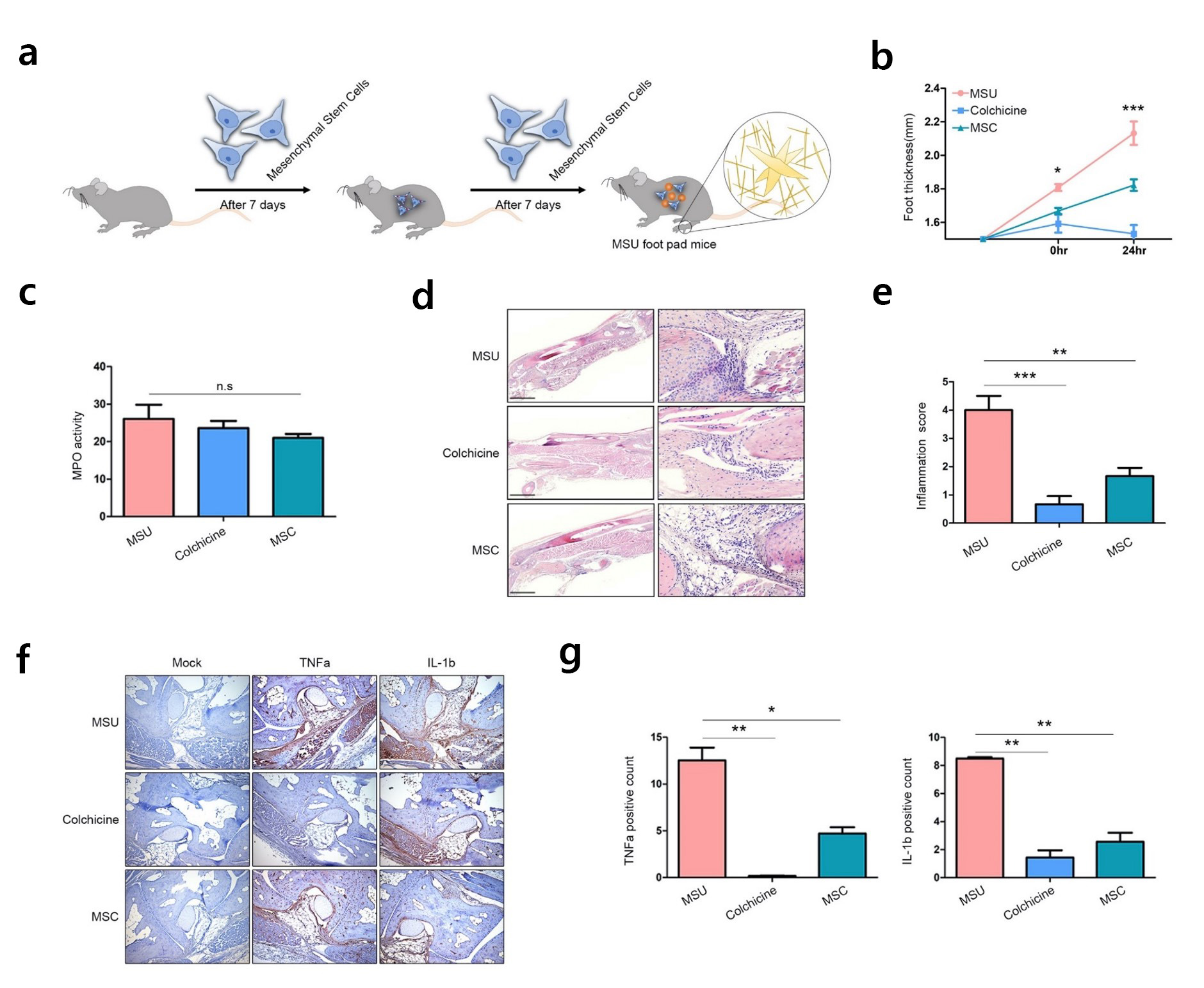Session Information
Date: Saturday, November 16, 2024
Title: Metabolic & Crystal Arthropathies – Basic & Clinical Science Poster I
Session Type: Poster Session A
Session Time: 10:30AM-12:30PM
Background/Purpose: Mesenchymal stem cells (MSCs) have anti-inflammatory properties and have been implicated in several inflammatory diseases. Acute gout is initiated by IL-1β produced by monosodium urate crystal (MSU)-stimulated macrophages via activation of NLRP3 inflammasomes. We sought to investigate whether MSCs derived from human bone marrow (hBM-MSCs) suppress MSU-induced inflammation.
Methods: hBM-MSCs were stimulated with proinflammatory cytokine cocktails or co-cultured with MSU-treated macrophages. Gene and protein expressions of cytokines and NLRP3 inflammasome-related molecules were measured with reverse transcription-polymerase chain reactions, western blot analysis, and cytokine arrays. In vivo therapeutic effects were evaluated in a murine acute gout model.
Results: Macrophages stimulated with MSUs produced less caspase-1 and IL-1β in the presence of hBM-MSCs. Furthermore, macrophages co-cultured with hBM-MSCs produced more IL-10 and less TNF-α, IL-6, and nitric oxide synthase-2 (NOS2), suggesting that the M1-like phenotype of the macrophages were suppressed. hBM-MSCs produced higher anti-inflammatory cytokine such as IL-1 receptor antagonist in the co-culture system. They also produced high level of IL-6 in the inflammatory milieu, and the suppression of IL-1β production of macrophages was abrogated with an IL-6 receptor blockade. Intravenous treatment of hBM-MSCs suppressed MSU-induced acute inflammation in a murine acute gout model.
Conclusion:
In conclusion, hBM-MSCs suppress MSU-induced inflammation by suppressing the M1-like phenotype of macrophages in a partially IL-6 dependent pathway. Here, we suggest a potential therapeutic use of hBM-MSCs for treatment of acute gout.
To cite this abstract in AMA style:
Lee J, Choi A. Mesenchymal Stem Cells Derived from Human Bone Marrow Ameliorate Monosodium Urate Crystal-induced Inflammation [abstract]. Arthritis Rheumatol. 2024; 76 (suppl 9). https://acrabstracts.org/abstract/mesenchymal-stem-cells-derived-from-human-bone-marrow-ameliorate-monosodium-urate-crystal-induced-inflammation/. Accessed .« Back to ACR Convergence 2024
ACR Meeting Abstracts - https://acrabstracts.org/abstract/mesenchymal-stem-cells-derived-from-human-bone-marrow-ameliorate-monosodium-urate-crystal-induced-inflammation/

